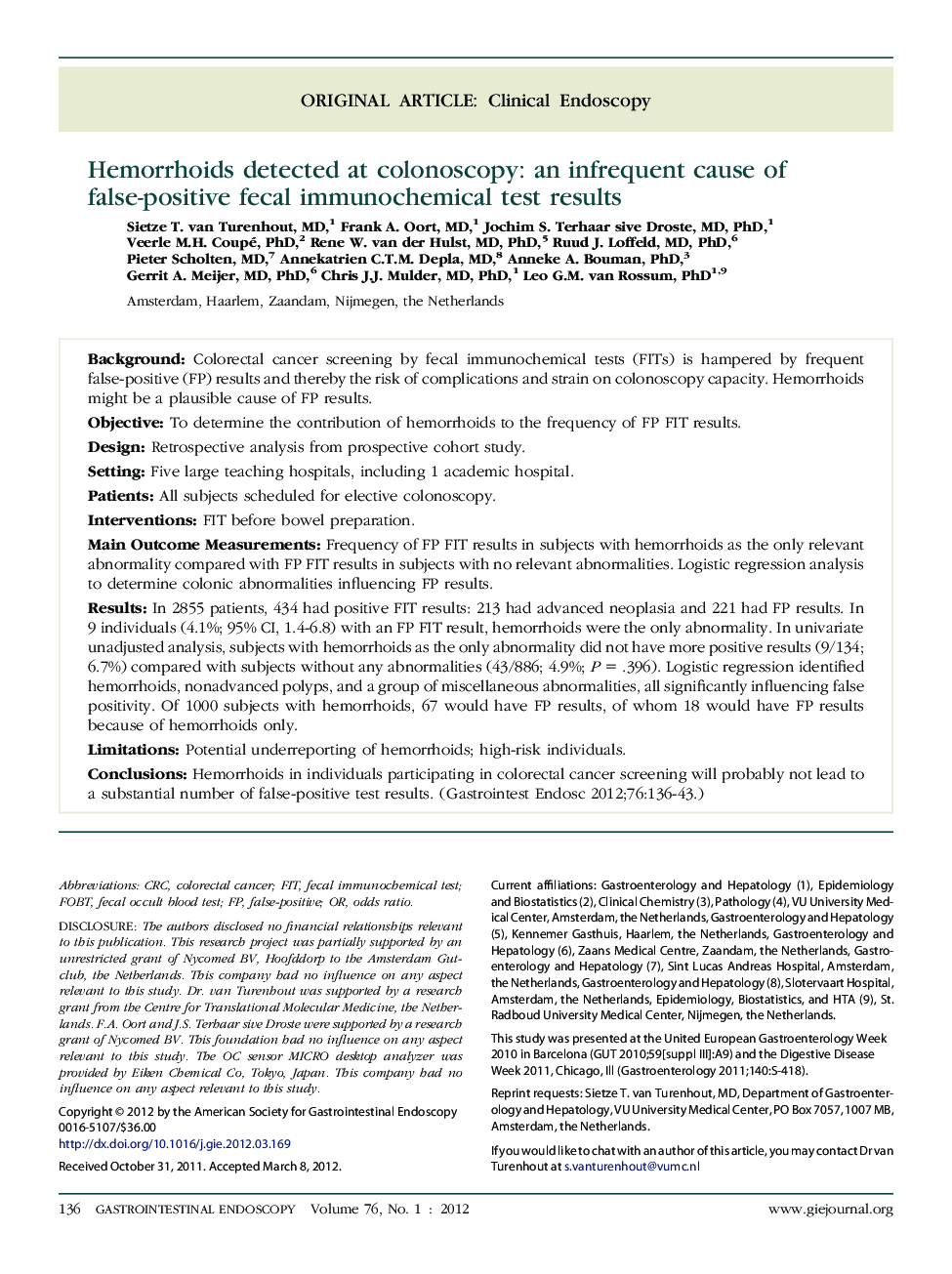| Article ID | Journal | Published Year | Pages | File Type |
|---|---|---|---|---|
| 3304163 | Gastrointestinal Endoscopy | 2012 | 8 Pages |
BackgroundColorectal cancer screening by fecal immunochemical tests (FITs) is hampered by frequent false-positive (FP) results and thereby the risk of complications and strain on colonoscopy capacity. Hemorrhoids might be a plausible cause of FP results.ObjectiveTo determine the contribution of hemorrhoids to the frequency of FP FIT results.DesignRetrospective analysis from prospective cohort study.SettingFive large teaching hospitals, including 1 academic hospital.PatientsAll subjects scheduled for elective colonoscopy.InterventionsFIT before bowel preparation.Main Outcome MeasurementsFrequency of FP FIT results in subjects with hemorrhoids as the only relevant abnormality compared with FP FIT results in subjects with no relevant abnormalities. Logistic regression analysis to determine colonic abnormalities influencing FP results.ResultsIn 2855 patients, 434 had positive FIT results: 213 had advanced neoplasia and 221 had FP results. In 9 individuals (4.1%; 95% CI, 1.4-6.8) with an FP FIT result, hemorrhoids were the only abnormality. In univariate unadjusted analysis, subjects with hemorrhoids as the only abnormality did not have more positive results (9/134; 6.7%) compared with subjects without any abnormalities (43/886; 4.9%; P = .396). Logistic regression identified hemorrhoids, nonadvanced polyps, and a group of miscellaneous abnormalities, all significantly influencing false positivity. Of 1000 subjects with hemorrhoids, 67 would have FP results, of whom 18 would have FP results because of hemorrhoids only.LimitationsPotential underreporting of hemorrhoids; high-risk individuals.ConclusionsHemorrhoids in individuals participating in colorectal cancer screening will probably not lead to a substantial number of false-positive test results.
